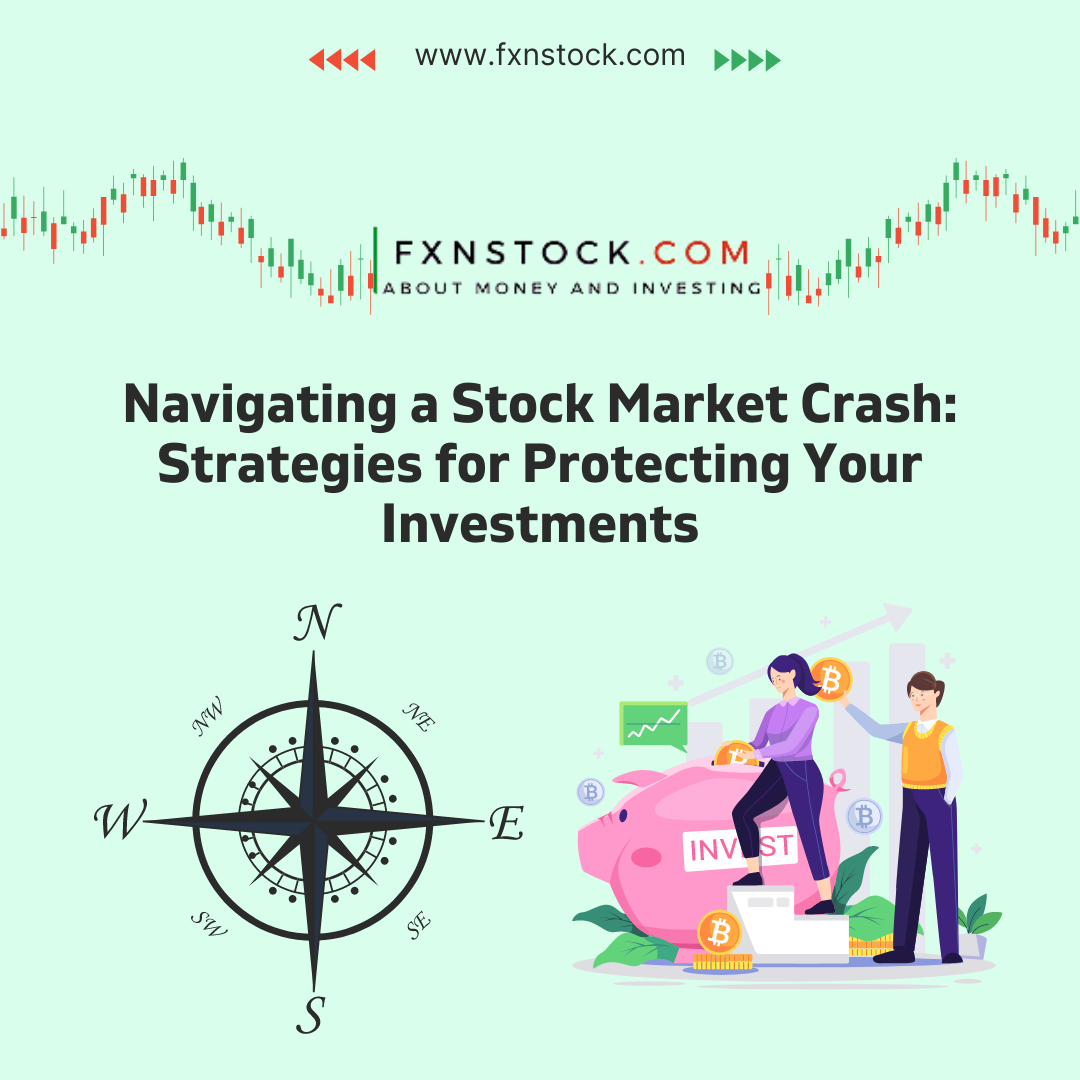Table of Contents
Table of Contents
Investing in the stock market can be a great way to build wealth over time. However, with the potential for high rewards also comes the risk of losing money, particularly during a stock market crash. The stock market is inherently volatile, with fluctuations that can cause panic among investors. In this article, we’ll explore some strategies for protecting your investments during a stock market crash.
What is a Stock Market Crash?
Before we dive into strategies for protecting your investments, let’s define what we mean by a stock market crash. A stock market crash is a sudden, severe drop in stock prices, typically over a period of several days or weeks. Stock market crashes are often caused by economic factors, such as a recession or a decline in corporate earnings. They can also be triggered by global events, such as natural disasters or political unrest.
Strategy 1: Diversify Your Portfolio
One of the best ways to protect your investments during a stock market crash is to diversify your portfolio. Diversification means investing in a variety of stocks, bonds, and other assets, rather than putting all of your money into one stock or sector. By diversifying your portfolio, you can reduce your overall risk and minimize the impact of a stock market crash on your investments.
Strategy 2: Have a Long-Term Perspective
Another strategy for protecting your investments during a stock market crash is to have a long-term perspective. While it may be tempting to sell your stocks during a downturn, history has shown that the stock market typically bounces back over time. By staying invested and maintaining a long-term perspective, you can avoid the temptation to sell at the bottom and potentially miss out on future gains.
Strategy 3: Consider Alternative Investments
In addition to diversifying your portfolio, you may also want to consider alternative investments as a way to protect your investments during a stock market crash. Alternative investments, such as real estate, commodities, and private equity, can provide diversification and potentially higher returns than traditional stocks and bonds. However, alternative investments are typically more complex and may require a higher level of expertise to manage.
Strategy 4: Maintain Adequate Cash Reserves
During a stock market crash, it’s important to maintain adequate cash reserves to cover your expenses and avoid selling investments at a loss. By keeping a portion of your portfolio in cash or cash equivalents, such as savings accounts or money market funds, you can have the flexibility to weather market downturns without having to sell your investments.
Strategy 5: Stay Informed and Seek Professional Advice
Finally, one of the best strategies for protecting your investments during a stock market crash is to stay informed and seek professional advice. Keep up to date with market news and trends, and consider consulting with a financial advisor or investment professional to help you navigate market volatility.
Conclusion
Investing in the stock market can be a great way to build wealth over time, but it also comes with inherent risks. During a stock market crash, it’s important to stay calm and focus on strategies that can help protect your investments. By diversifying your portfolio, maintaining a long-term perspective, considering alternative investments, maintaining adequate cash reserves, and seeking professional advice, you can navigate a stock market crash and protect your investments for the long term.
FAQs
- What causes a stock market crash?
- How often do stock market crashes occur?
- Is it possible to avoid losses during a stock market crash?
- Should I sell my stocks during a stock market crash?
- Can alternative investments protect my investments during a stock market crash?
FAQ 1: What causes a stock market crash?
A stock market crash can be caused by a variety of factors, including economic downturns, political instability, natural disasters, or other global events. One of the most common causes of a stock market crash is a sudden decline in corporate earnings or a recession, which can cause investors to panic and sell their stocks. Other factors, such as rising interest rates or inflation, can also contribute to market volatility.
FAQ 2: How often do stock market crashes occur?
Stock market crashes are relatively rare events, but they can have a significant impact on investors’ portfolios. The frequency of market crashes can vary depending on a variety of factors, including economic conditions, global events, and investor sentiment. While it’s impossible to predict when a stock market crash will occur, it’s important to be prepared for the possibility and have a strategy in place for protecting your investments.
FAQ 3: Is it possible to avoid losses during a stock market crash?
It’s difficult to avoid losses entirely during a stock market crash, but there are strategies you can use to minimize the impact on your portfolio. One of the most effective strategies is to diversify your portfolio, which can help reduce your overall risk and minimize the impact of a stock market downturn on your investments. It’s also important to maintain a long-term perspective and avoid making knee-jerk reactions to market volatility.
FAQ 4: Should I sell my stocks during a stock market crash?
While it may be tempting to sell your stocks during a market downturn, it’s generally not a good idea to make emotional decisions based on short-term market fluctuations. History has shown that the stock market typically bounces back over time, and selling during a downturn can potentially lock in losses and cause you to miss out on future gains. It’s important to stay calm and focus on long-term strategies for protecting your investments.
FAQ 5: Can alternative investments protect my investments during a stock market crash?
Alternative investments, such as real estate, commodities, and private equity, can provide diversification and potentially higher returns than traditional stocks and bonds. However, alternative investments are typically more complex and may require a higher level of expertise to manage. It’s important to carefully consider the risks and benefits of alternative investments and work with a financial advisor or investment professional to determine if they’re appropriate for your portfolio.










